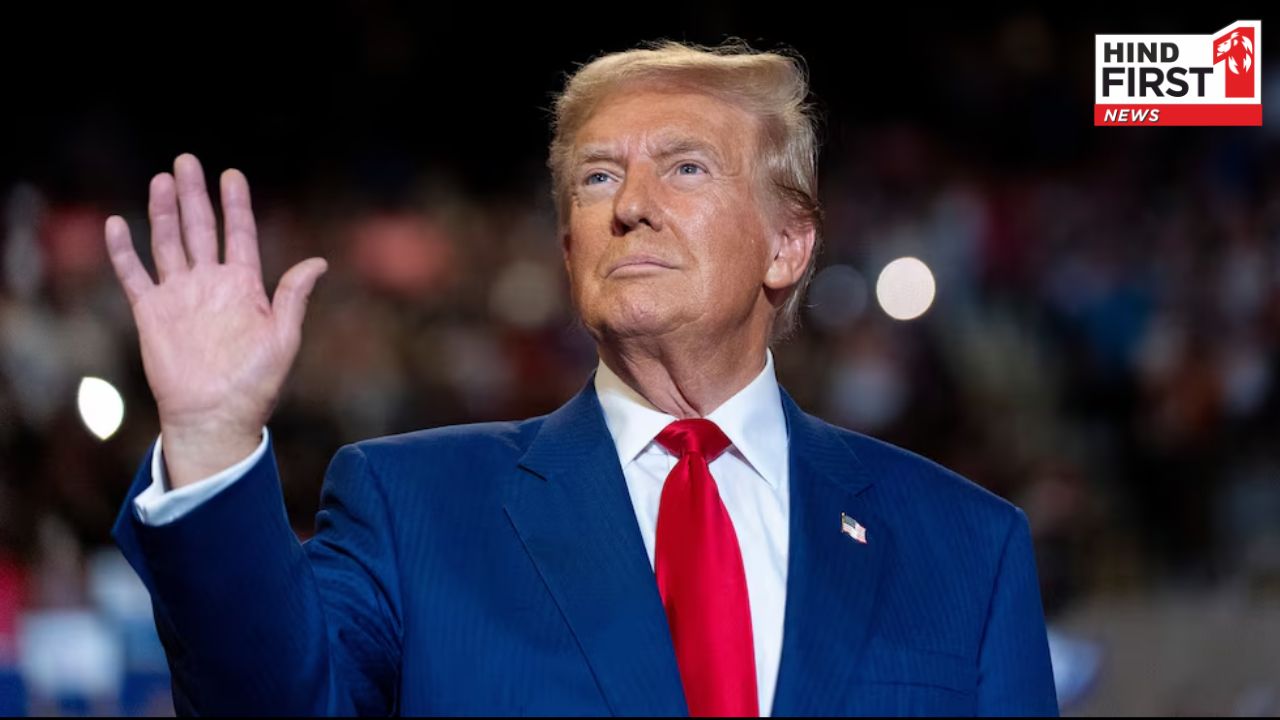Donald Trump Wins 2024 U.S. Presidential Election: Key Policies and Global Impact
Donald Trump has won the 2024 U.S. presidential election, marking his return as the 47th President after a four-year break. His victory is expected to bring significant changes to both the U.S. and the global economy.
Donald Trump has been elected the 47th President of the United States, defeating Democratic candidate Kamala Harris in a closely contested race. This victory marks Trump's return to the White House after a four-year break, signaling potential changes to both U.S. domestic policies and its international relations. Experts predict that his re-election could bring significant shifts in areas such as global trade, fiscal policy, and economic stability. 
Key Policy Proposals and Their Impact on India
Donald Trump’s election manifesto includes several policy proposals that could affect both the U.S. economy and countries like India. Some of the major points include:Trade Tariffs
Trump plans to impose significant tariffs on imports, including 60% tariffs on goods from China and 10-20% on imports from other countries. He also proposed 100-200% tariffs on vehicles from Mexico to protect U.S. jobs. While this could disrupt global trade and raise prices, it may create an opportunity for India to attract business from companies looking to move supply chains out of China. However, a global trade slowdown could also negatively impact India’s economy.Tax Reforms
Trump aims to extend the 2017 Tax Cuts and Jobs Act, which includes reducing corporate taxes from 21% to 15% for U.S. manufacturers. He also wants to eliminate the cap on state and local tax deductions, cap credit card interest rates at 10%, and make car loan interest tax-deductible. While these measures might encourage consumer spending, experts warn they could also increase inflation and add to the U.S. fiscal deficit, which already stands at 6.3% of GDP.Foreign Policy and Defense
Trump has pledged to end conflicts like the Russia-Ukraine war and tensions in the Middle East. He also supports Israel strongly and wants NATO members to meet their defense spending targets. These policies could affect U.S. relationships with its global allies and impact defense-related industries worldwide.Energy Strategy
Trump’s administration plans to boost domestic fossil fuel production and ease restrictions on drilling and emissions. The U.S. will also reduce subsidies for green technologies. This could lead to lower global energy prices, potentially benefiting India, which imports a large portion of its oil. Stable energy prices could help India manage its energy needs more efficiently.Immigration and Outsourcing
Trump plans stricter immigration laws, including penalties for visa overstays and illegal entries. This could impact India’s IT sector, which relies heavily on the U.S. for work visas and outsourcing contracts. Tougher immigration rules could make it harder for Indian tech workers to gain employment in the U.S.
Economic and Market Implications
According to CareEdge Ratings, Trump’s proposed tax cuts and tariffs could lead to inflation and widen the U.S. fiscal deficit. These changes may also disrupt global trade, causing price hikes on imported goods. The full impact will depend on how strictly tariffs are enforced and any trade negotiations that take place in the future.U.S. Dollar and Its Impact on the Indian Rupee
Trump’s return to the presidency is likely to support the U.S. dollar in the short term, due to expectations of economic growth. However, over the long term, the dollar might face pressure from increasing fiscal deficits, which could lead to market volatility. For India, this could result in fluctuations in the rupee’s value, although India’s strong foreign exchange reserves should help manage these risks. The Indian rupee may depreciate less than the Chinese yuan, especially if Trump’s tariffs on China lead to a slowdown in the Chinese economy. In the meantime, India's economy might benefit from Foreign Portfolio Investment (FPI) inflows as clarity emerges on Trump’s policies.Outlook for Indian and Global Markets
CareEdge Ratings suggests that India could see an influx of FPI inflows, especially with India’s inclusion in global bond indices, which could support the rupee. However, the effect on other Asian currencies, particularly those with significant exposure to China, remains uncertain. If China responds with effective stimulus measures, it could help stabilize regional currencies and lessen the negative impact of Trump’s tariffs. Overall, Trump's victory will likely bring significant changes to the global economic landscape. While his policies may stimulate short-term growth in the U.S., they also carry risks like inflation and widening fiscal deficits. For India, the evolving global situation presents both opportunities—such as a shift in supply chains—and challenges related to trade disruptions and global economic slowdowns. Also read: Prime Minister Modi Congratulates Justice Sanjiv Khanna on Becoming ChiefSUMMARY
Donald Trump has won the 2024 U.S. presidential election, marking his return as the 47th President after a four-year break. His victory is expected to bring significant changes to both the U.S. and the global economy. Trump's key policy proposals include tax reforms such as lowering corporate taxes and offering new deductions, which could stimulate spending but may also increase inflation and the fiscal deficit. He plans to impose high tariffs on imports, particularly from China and Mexico, which could disrupt global trade but may create opportunities for India as companies shift supply chains. Trump also aims to end ongoing conflicts, support Israel, and push NATO members to meet defense spending targets. His immigration policies could impact India’s IT sector, while his focus on boosting U.S. energy production may help stabilize global oil prices, benefiting India. While his policies could lead to short-term growth in the U.S., experts warn of inflationary risks and potential trade disruptions. For India, the changing global landscape presents both opportunities in trade and energy, and challenges related to tariffs and global market shifts. Disclaimer: The views and recommendations made above are those of individual analysts or broking companies and not of Hindfirst. We advise investors to check with certified experts before making any investment decisions. Next Story


